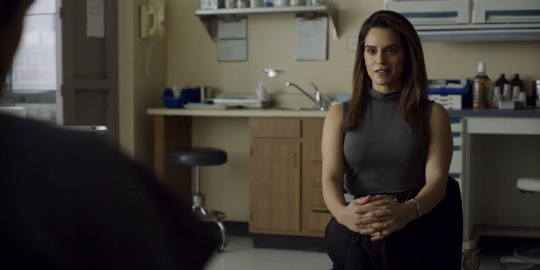#Lauren McCauley
Photo




Well, mark me down...
Black Bird 1x02
#black bird#blackbirdedit#taron egerton#tegertonedit#taronegertonedit#jimmy keene#sepideh moafi#lauren mccauley#tvedit#userbbelcher#chewieblog#bb 1x02#ours#by jess#'y’all ever want a pretty girl to just.. boss u around a little bit'
311 notes
·
View notes
Photo


#black bird#lauren mccauley#jimmy keene#seems interesting#sepideh moafi#taron egerton#//#another day another show
56 notes
·
View notes
Text










Lauren McCauley - Black Bird 1x06
#Sepideh Moafi#Lauren McCauley#Black Bird#AppleTV#season finale#her acting is 🔥🔥🔥#this show was great!
35 notes
·
View notes
Photo
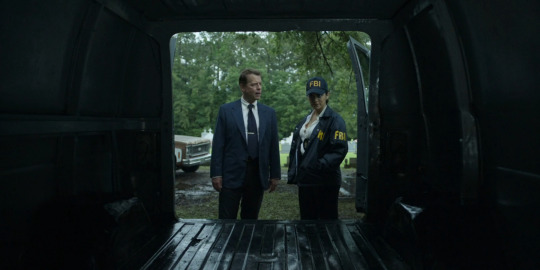
Black Bird
“We Are Coming, Father Abraham”
Director: Michaël R. Roskam
DoP: Natalie Kingston
#Black Bird#We Are Coming Father Abraham#Black Bird S01E02#miniseries#Michaël R. Roskam#Natalie Kingston#Greg Kinnear#Brian Miller#Sepideh Moafi#Lauren McCauley#Dennis Lehane#Apple TV+#Apple Studios#EMJAG Productions#Imperative Entertainment#Eden Productions#Crime Story#Hans Bubby#TV Moments#TV Series#TV Show#television#TV#TV Frames#cinematography#July 8#2022
6 notes
·
View notes
Note
random mannsgiving question: have you ever written about the art in heat? i've tried googling "why do vincent and justine have a GIANT NAKED MAN in their bedroom", but no dice, lmao. am also v fond of "Painting of a Man with His Face Half Hidden" that justine always purposefully stands in front of, and whatever that not-at-all-symbolic twins/lovers painting is that neil passes at van zant's.
Excuse my incredibly shitty “screenshots.” The HUGE NAKED MAN painting is insane, it’s one of so many details in Mann’s strategic placement of art within the Gustafson home, a structure I am especially fascinated by because it exists specifically to menace Vincent Hanna and to reflect his deepest fears and insecurities back at him.
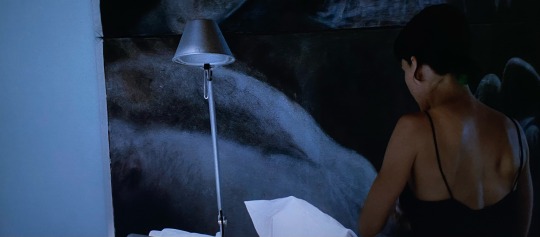
Is he dying? Is he having an orgasm? It’s difficult to tell, and symbolically, the difference doesn’t actually amount to much, lol. But it is a male figure who looms behind the marital bed, visually duplicating the shadow of the Absent Biological Father, whose existence was just introduced to us with Lauren.
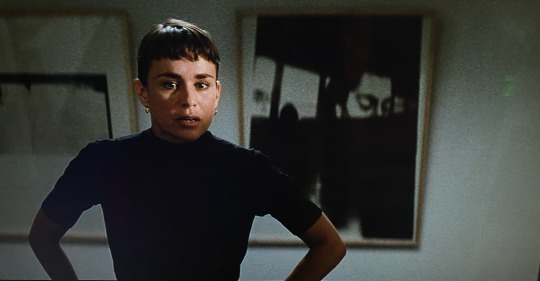
There is of course the painting of the figure next to Justine, whose gaze is cast downward and whose mouth is obscured — he will not look (what should he be looking at?), and he will not speak (to whom, about what?).
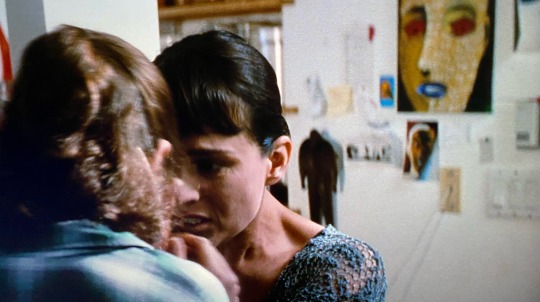
My favorite: the kitchen wall! We are being shown that this is Lauren’s art, what is probably a self-portrait, and some pretty bleak foreshadowing: her eyes are red (with rage? From tears?) and her lips are blue, suggesting a cadaver. The rest is hard to see clearly, but there’s pretty obviously a suit, masculine totem of the Profession, hanging there facing the wall, with no one inside it. It's empty. [KILL BILL SIRENS]

WHY ARE THERE DOLL BABIES HANGING FROM THE CEILING? WHAT???

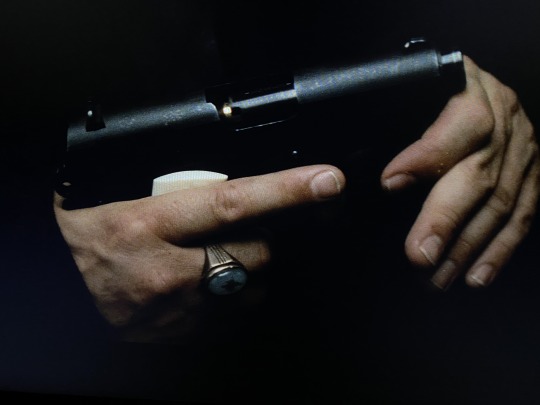
A common motif in Vincent’s associated visuals is black encased in white, or white encased in black: it’s in the house, it’s on his ring, it’s even on his gun (ivory, to mark him as a hunter). He first sees Neil’s face in black and white. He speaks of a dream in which dead bodies accost him with their black eyeballs. There’s too much to pick apart here all at once, but that symbolism of duality and containment, darkness and light that engulfs the other rather than integrating, or that strains to break out, is heavily loaded.
What’s also black and white? A photocopy, usually — at least in 1995! — or a facsimile.

Van Zant also gets some fun black and white decor, and in this case the “bad copy” is a of a colorless jungle, zebra stripes and another naked man (lol) and monochrome plant fronds. The suggestion is of a sterile, inauthentic masculinity-by-proxy, Van Zant thinking he can win a war in the streets against Neil by ordering his cronies to fight it for him, engaging in the kind brute violence he could never endure or enact himself. It is contrasted in the same scene with Neil’s authentic immersion in the gritty, razor-wired jungle of L.A.:
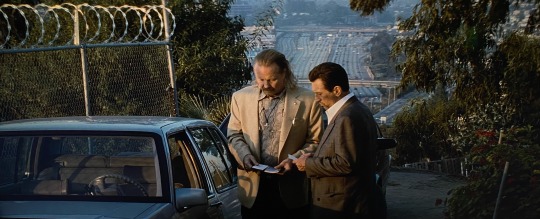
Neil is positioned very frequently next to patches of greenery and nature within the urban matrix, symbolizing this pastoral escapist fantasy for which he yearns, that he has been trying patiently to defer but is tempted by Eady to pursue too fast, too soon. Eady as in Eve, greenery as in a certain garden…
In Van Zant’s house, we see that painting of the Doubles, and there is the suggestion of the Lover but also of the Twin, the Bad Copy. Van Zant is doing under cover of legality and propriety, or the trappings of them, that which Neil and his crew served hard time for by putting their bodies on the line. Breeden’s quote comes to mind: I did hard time for what that motherfucker does every day. When Neil executes Van Zant, he is also raging against that inauthenticity, that fundamental capitalist hypocrisy.
I could go on: the architectural stylings of Chris and Charlene’s house foreshadowing his whole character arc in Heat 2 (no way!), the painting in Eady’s house that is clearly a hand reaching out (ooohhh noooo), that in Mann’s rendition of the iconic Alex Colville painting he makes sure to show us the gun paired with the set of house keys (WOAGH), it just goes on and on. He’s a genius.
#michael mann#heat 1995#heat (1995)#robert de niro#al pacino#neil mccauley#vincent hanna#justine gustafson#lauren gustafson
42 notes
·
View notes
Text
The Object of My Affection (1998) Review
When George Hanson is broken up with by his long term boyfriend, he moves in with Nina Borowiski who just happens to get pregnant and then starts to fall in love with him.
⭐️⭐️
Continue reading Untitled

View On WordPress
#1998#Alan Alda#Allison Janney#Bradley White#Comedy#Drama#Ellen Tobie#Hayden Panettiere#Janet Zarish#Jennifer Aniston#Kali Rocha#Lauren Chen#Lauren Pratt#Lena Cardwell#Liam Aiken#Nicholas Hytner#Paul Rudd#Review#Romance#Stephen McCauley#The Object of My Affection#Tim Daly#Wendy Wasserstein
1 note
·
View note
Text
What are some of the best LGBTQ books?
Carol / The Price Of Salt by Patricia Highsmith
Tipping the Velvet by Sarah Waters
Call Me by Your Name by Andre Aciman (this was just turned into a film)
The Female Man by Joanna Russ
Valencia by Michelle Tea
The Slow Fix by Ivan E. Coyote
Stone Butch Blues by Leslie Feinberg
Landing by Emma Donoghue
A Home at the End of the World by Michael Cunningham
The Kushiel's Legacy Series by Jacqueline Carey
The Nightrunner Series by Lynn Flewelling
Leave Myself Behind by Bart Yates
Now and Then by William Corlett
Dream Boy by Jim Grimsley
Les amitiés particulières (Special Friendships) by Roger Peyrefitte
Another Country by Julian Mitchell
Transgender History by Susan Stryker (good starting point into queer history in the United States)
All Boys Aren’t Blue by George M Johnson
Tr*nny: Confessions of Punk Rock’s Most Infamous Anarchist Sellout by Laura Jane Grace
An Unkindness of Ghosts by Rivers Solomon (dark but very engaging—the USA antebellum south but set on a generation ship)
Dead Collections by Isaac Fellman (read it in one night—archivist vampires)
Light from Uncommon Stars by Ryka Aoki (very cute and kind of wacky at points—includes aliens running a donut shop and Faustian deals with demons)
The Left Hand of Darkness, Ursula K. Le Guin
the song of Achilles has a special place in my heart
Middlesex - Eugenides
Fifteen Hundred Miles from the Sun by Johnny Garza Villa.
The Bucolic Plague by Josh Kilmer-Purcell
Insignificant Others by Stephen McCauley
Let There Be Light by AM Johnson.
When Everything Is Blue by Lauren Lascarso.
Boyfriend Material and Glitterland by Alexi Hall.
The Happy List by Briar Prescott.
The Charm Offensive by Alison Cochrun.
The Will Darling Adventures by KJ Charles.
Heated Rivalry by Rachel Reid.
The Place Between by Kit Oliver.
The Hearts Invisible Furies by John Boyne.
Bear, Otter and the Kid by TJ Klune.
Fun Home by Allison Bechdel
The Mask of Apollo - Renault
#lgbt pride#pride parade#pride#wlw pride#mogai pride#mtf pride#trans pride#ace pride#lgbt#queer#gay pride#lgbtqia#pride month#pride flags#lgbt books#bookshelf#book reviews#books#book quotes#bookaholic#bookboost#bookblr#bookbuzz#reading#booklr#books and reading#booknerd#bookworm#book review
289 notes
·
View notes
Text
I was sitting next to Lauren McCauley on the plane that is heading to Springfield, Missouri to take Jimmy Keene there as a ‘prisoner who was arrested for arms dealing.’ She was going over the file of Larry Hall with me. Jimmy was dressed in street clothes and sitting at a table with the other agents and talking about who knows what. Every once in a while I see him glance over at me.
Lauren calls to him “Hey, Jim, I need you over here for a bit.” He tells her “Sure. Give me a minute.” She says, more sternly “No minute. Come on.” Jimmy comes over and sits down across from us. He looks me up and down and I feel my face get hot. Lauren begins “You wanna be out of prison yesterday, right?” Jimmy nods. She continues “And the feeling’s only gotten worse since we dangled this carrot, correct?” Jimmy nods. She tells him “Like a clock tick, tick, ticking away. Right? Don’t let the clock rule you.”
Lauren looks at me. Jimmy and I have met a couple times before when Lauren was meeting him at the Illinois prison and asking him what he read about the case. I tell him “Don’t approach Hall to early, or he’ll know we sent you for him.” He says “I hear you.” Lauren and I talked about a plan going forward. I launch into it, “Besides the warden and Dr. Zicherman, I’m your only other safety line. When I visit you treat me like your girlfriend. Slip me tongue, grab my ass, whatever.” Jimmy perks up. He asks with a nervous laugh, “Grab your ass?” Reiterating, I say “Yes. Cop a feel. Do what it takes.” He leans forward, looks me in the eyes and says seductively “Should we practice now?” I felt a little in a trance.
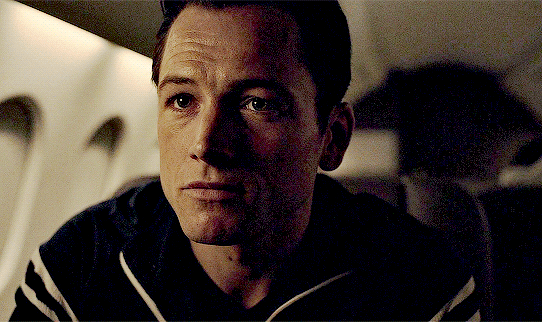
Lauren breaks it by saying “If shit hits the fan, you get to Zicherman or Warden Price, and have them call us ASAP. And Jimmy do not get any time added to your sentence, understand? If you get time tacked to your sentence, it supersedes our deal. It will be beyond our control. You’ll be stuck doing Springfield time.” He asks “What if I have to defend myself?” She says “Don’t maim anyone. And don’t get caught.”
Jimmy stands up and goes back to join the guys. She turns to me and says “Don’t let any of the things he says, lets you forget why we’re doing this.” I ask her “What do you mean exactly?” She says “I saw the way you two were looking at each other. Remember he’s a womanizer and knows how to play women to get what he wants.” I look over at Jimmy and then back at Lauren. I tell her “It’s all an act.” I think. She tells me “It better be.”
Lauren stands up and walks to the back of the plane. I lean my head back against the head rest and look out the window. After 15 minutes, I stand up and go sit on one of the couches. The guys get comfortable in their chairs and Lauren gets comfortable in hers as they start drifting off to sleep. I have a hard time closing my eyes because what Lauren said keeps running through my mind. Distracted by the thoughts, I don’t hear Jimmy come over and take the seat next to me.
He quietly asks “Can we talk?” I look around and tell him “Follow me.” We head to the back part of the plane that is shielded from the others. I lean against the table and cross my arms while Jimmy stands across from me. He is leaning against the opposite table with his hands against the edge of it. I ask “What did you want to talk about?” He looks at the floor, says “The part about when you do visits.” I ask “Which part exactly?” He looks at me, says “The part that said ‘do whatever it takes.’” I ask to clarify, “What about that did you want to talk about?” He says as he takes a step closer, “If we’re going to make it look believable…we should probably make sure we know each other in that sense.” Please, say what I think you mean. I ask “How do you want to do that?” He asks the same question he asked earlier, “Should we practice?”

I look in the direction of where everyone is. I bite the inside of my bottom lip. I say “I could get in trouble and Lauren is going to be pissed.” He steps closer to me, puts a hand on my left arm and says “She wants us to play the parts anyways. What is one little ‘practice’ going to hurt?”
My arms still crossed, I close the gap between us. I tilt my head up toward him as he tilts his down. My tongue at the back of my bottom teeth, I place my lips against his. He brushes his tongue against my lips and if as obeying…I let him in. I moved my arms to around his torso, up to his shoulder blades and pulled him closer. His arms moved to my lower back. I then move my arms to around the back of his neck and he wraps tighter around my waist. I then feel his arms loosen as his hands move to my butt and give a little squeeze. I smile against his lips. He then bends down a little, sliding his hands down to the back of my thighs, lifts and then I do a little hop and wrap my legs around his waist.
Jimmy steps to the table, leans forward and lowering me to the table. He starts kissing down my neck and chest and I run my fingers through his hair. Jimmy slides the hem of my shirt up and gives some attention to my stomach. I lay my left arm back against the table and my right hand continues running through his hair. Feeling his tongue on my skin makes my back arch a little.
After a little bit, he goes back to my lips. His left arm wraps around my lower back and places his right hand against the back of my left knee. Jimmy pulls closer to him and then stands back up without breaking the kiss. I am now sitting on the edge of the table, he pulls away. I tell him, breathlessly “Yeah…there is a…good chance we can make this believable.” He gives me smirk but with a hint of realization.
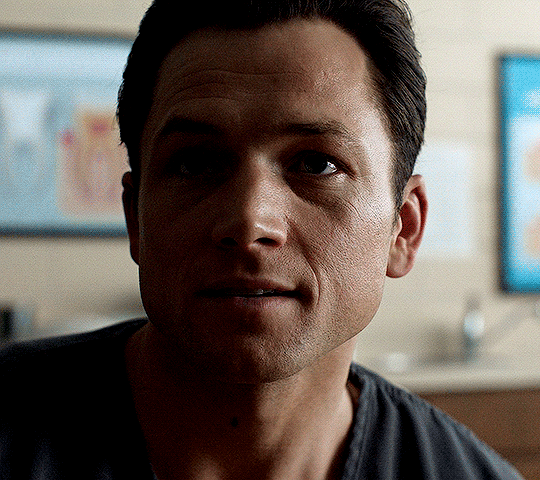
We rearrange our clothes. I peek out the door and it looks like everyone is still asleep. We make our way back to our seats. I give him one last look and I feel my face get hot. A couple more hours pass when the plane eventually lands. Everyone steps on to the tarmac and Jimmy is handcuffed, immediately. We walk with him to the van. He climbs in, turns to me and gives a look of concern. I hope my eyes tell him, ‘When this is over…lets pick up where we left off.’ He then takes a seat. Lauren tells him “Remember what we said Jimmy.” I tell him “Be careful. We’ll be in touch.” Jimmy gives me a look as if questioning with a hint of fear. The van doors close. Lauren and I watch it drive off to the prison.
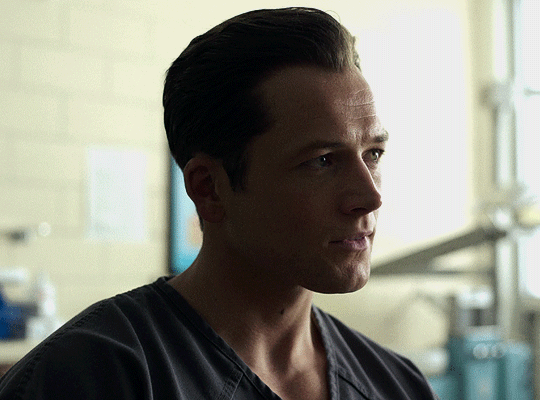
#Jimmy Keene imagines#Jimmy Keene x reader#Jimmy Kenne x female reader#Taron Egerton imagines#Taron Egerton x reader#Taron Egerton x female reader
58 notes
·
View notes
Photo

Michael Cimino photographed by Shane McCauley for Wonderland Winter 22/23. Michael wears Greg Lauren shirt, vest and pants, Jimmy Choo shoes
89 notes
·
View notes
Text
CHAPTER LIST — THE GOOD , THE BAD , AND THE CHOSEN


“what do you like about women , Jimmy?” McCauley had asked him , it caused y/n to sit there and chew at the inside of her cheek . What did Jimmy like about women so badly that it made her seem unfit for him.
“everything” he had replied , y/n just scoffed behind the two-way mirror . There wasn’t a way in hell he’d get out of a conversation with Lauren this easy .

Prologue
chapter 1 - the right to know
17 notes
·
View notes
Photo
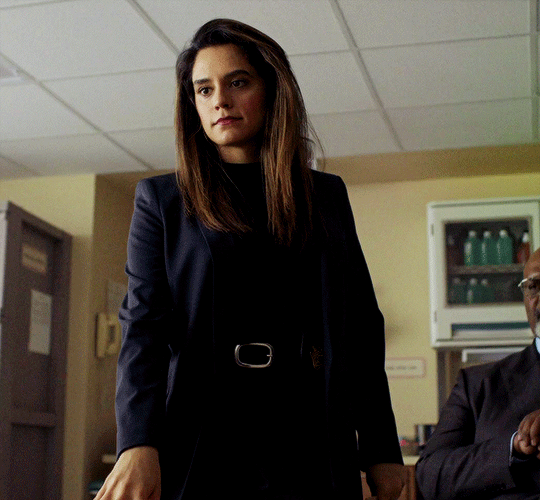
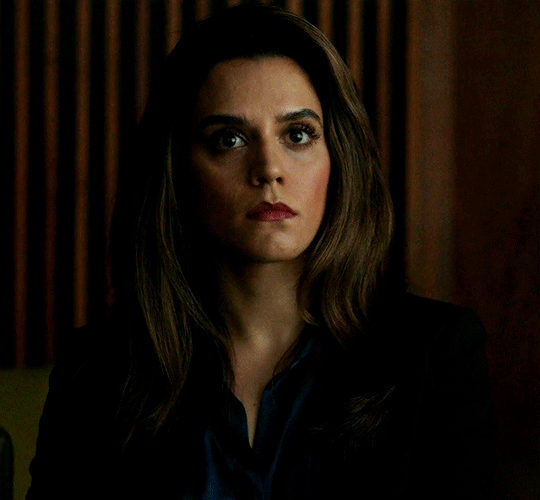



Sepideh Moafi as Lauren McCauley
Black Bird | 1.01 Pilot
#sepideh moafi#dailytvwomen#tvedit#black bird#blackbirdedit#userbbelcher#userstream#userladiesblr#useroptional#chewieblog#my edits
192 notes
·
View notes
Text
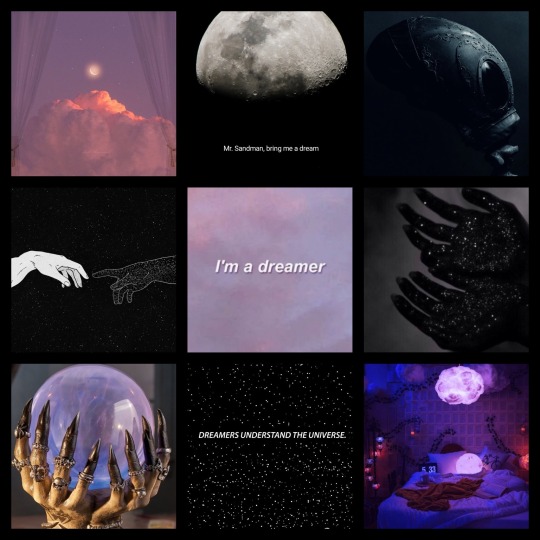
all my nights taste like gold: a self shipping playlist for lord morpheus, dream of the endless (from neil gaiman’s the sandman)
1. a million dreams - pink 2. you say - lauren daigle 3. waking up slow (piano version) - gabrielle aplin 4. the last night - skillet 5. sick of losing soulmates - dodie 6. sweet dreams (are made of this) - emily browning 7. red right hand - pj harvey 8. sleep - poets of the fall 9. song to the siren - rose betts 10. our corner of the universe - k.s. rhoads 11. still dream - renee fleming 12. when i first saw you - beyonce & jamie foxx 13. strange sight - kt tunstall 14. cosmic love - florence + the machine 15. it can’t rain all the time - jane siberry 16. as the world falls down - karliene 17. reverie - megan mccauley 18. invisible - zara larsson 19. touch - daughter 20. everything i wanted - billie eilish 21. personal jesus - depeche mode 22. dreams to dream - cathy cavadini 23. once upon a dream - lana del rey 24. rule the world - take that 25. lullaby - emmy rossum 26. a thousand years - christina perri 27. phantom of the opera medley - lindsey stirling 28. beautiful dreamer - roy orbison 29. can’t help falling in love - kacey musgraves 30. dream a little dream of me - louis armstrong & ella fitzgerald 31. holy ground (taylor’s version) - taylor swift
[listen]
#playlist#fanmix#dream of the endless#lord morpheus#the sandman#neil gaiman#tom sturridge#self shipping#oc x canon
26 notes
·
View notes
Text

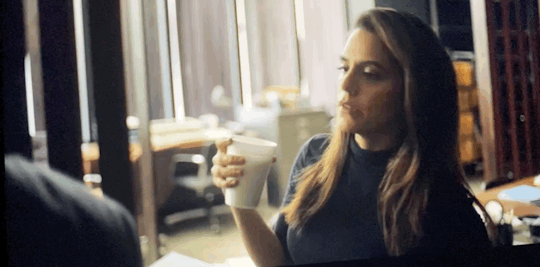

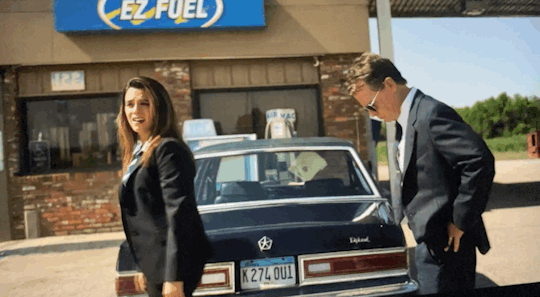


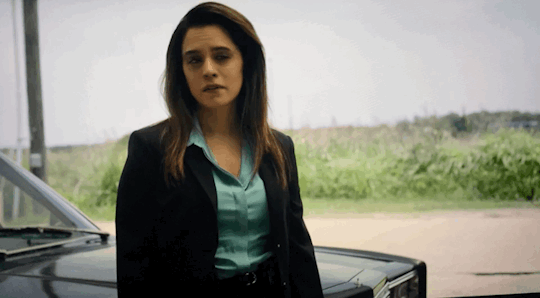



Lauren McCauley - Black Bird 01x05
#Sepideh Moafi#Greg Kinnear#Black Bird#Apple TV#Lauren McCauley#Brian Miller#this show is so good#I can't believe the finale is already next week
33 notes
·
View notes
Text
Applauding the Sadness and Subtle Coherence of Michael Mann’s Heat
by Bilge Ebiri
New York Magazine - December 21, 2015
I first saw Michael Mann’s Heat 20 years ago this month. It was opening night, and I had to sit off to the side of the very first row because we hadn’t arrived early enough and the theater — the Village VII, back when it was considered a fancy, state-of-the-art cinema — was packed. This was one of the most anticipated films of 1995, with a perfect storm of elements working in its favor. Mann had shown his action-movie chops and his flair for romance with Last of the Mohicans three years earlier. We ’80s kids knew him, of course, as the Miami Vice guy. Film buffs who’d been paying attention recognized him as the man who made Manhunter and Thief — brilliant thrillers that did poor business but accrued cult followings. There was also the small matter of Heat being the first time Robert De Niro and Al Pacino would share a screen together. Plus, the movie clocked in at nearly three hours. A major American auteur was clearly swinging for the fences. Attention had to be paid.
As soon as the end credits rolled, it was clear that Heat was a special film, filled with unforgettable sequences: the opening armored-car heist; the infamous coffee-shop face-off between master thief Neil McCauley (De Niro) and LAPD lieutenant Vincent Hanna (Pacino); the climactic bank robbery that ends in a hail of bullets; the ethereal finale, set to Moby’s “God Moving Over the Face of the Water.” And, of course, there were the hallmarks of Mann’s style: moody shots of characters standing against oceans of city lights and twilit skies; an authentic, immersive sense of place; the absorbing, well-researched dialogue.
And yet. And yet. And yet. There were elements in Heat that didn’t seem to fit, that stretched the movie in uncomfortable directions: a subplot about Donald Breedan (Dennis Haysbert), an ex-con trying to get straight; a weird, dropped segue suggesting that Waingro (Kevin Gage), a disgraced member of Neil’s crew, might actually be a serial killer; Justine Hanna’s (Diane Venora) many speeches to Vincent about their failing marriage; a seemingly random story thread involving Justine’s young daughter Lauren’s (a 14-year-old Natalie Portman) anxiety attacks. One suspected at times that Mann was trying to weld onto an otherwise-solid crime thriller the expansiveness of a Dickens novel, and that his ambitions had gotten the better of him. I loved Heat the first time I saw it, but there was also a lot of Heat I didn’t quite know what to do with.
That may be one reason why the film, while acclaimed and a decent box-office hit, was more admired than adored. In his mostly positive review in the New YorkTimes, Vincent Canby wrote, “[A]s Heat progresses, its sensational looks pale beside storytelling weaknesses that expose the more soulless aspects of this cat-and-mouse crime tale … [It] is fundamentally hollow and its characters haven’t much to say.” Owen Gleiberman of Entertainment Weekly wrote, “Heat is an ‘epic’ that feels like a stunt … like a grid for a crime thriller that was never filled in.” In another mostly positive review, Dave Kehr of the New York Daily Newscomplained that “the film fills its nearly three hour running time with domestic drama,” and declared, “the sudsiness of the plot ultimately aligns poorly with the film noir framework.”
No surprise, most of these criticisms have faded over the years, as Heat’s supposed problems have revealed themselves to be virtues. This isn’t just a cops-and-robbers story or a standard neo-noir. It’s a movie about men and women, about loneliness and alienation. By pushing at the edges of the genre, by going beyond the thrills and exploring — maybe even indulging in — the emotional lives of his characters, Mann presents a distinct vision of the world, one where connections between people happen on an intuitive level even before they happen on a narrative one. His filmography has always explored such cosmic bonds, from William Peterson’s FBI man and Tom Noonan’s serial killer in Manhunter, to Colin Farrell’s undercover vice cop and Gong Li’s narco financier in Miami Vice. In a profile I wrote about the director earlier this year, I joked that “Unquantifiable Connections could be the alternate title of every Michael Mann movie.” Heat is still his fullest, broadest depiction of that vision to date. It’s a sea of unquantifiable connections.
One way to gauge how much those aforementioned seemingly inorganic elements add to Heat is to look at the film’s earlier iteration, Mann’s own 1989 TV-movie L.A. Takedown. A tight but not-very-good crime flick originally intended as a feature-length pilot for a series, L.A. Takedown is the basic cat-and-mouse drama of Heat distilled to its essence. Mann had written the script in the 1970s, basing it on real-life incidents related to him by veterans of the Chicago police force, and had then trimmed it for TV. But devoid of the later film’s diffuse approach to narrative and its expansive look at the characters’ lives, L.A. Takedown is soulless and uninvolving. (To be fair, it also doesn’t have De Niro and Pacino: Anyone who studies acting should watch the coffee-shop scenes from L.A. Takedown and Heat side by side; the dialogue is practically verbatim, but the way it comes alive with those two actors beautifully demonstrates the intangibles that great performers bring to their parts.)
Heat - Diner Scene (Video)
https://www.youtube.com/watch?v=_rIYXfztyxA
Heat’s title is a reference to Neil’s oft-repeated line, learned on a prison yard: “Don’t let yourself get attached to anything you are not willing to walk out on in 30 seconds flat if you feel the heat around the corner.” This is also the organizing principle of the movie. Neil keeps his life mostly empty and devoid of any distractions, and Mann’s visual style echoes this dialectic between attachment and alienation. The director favors long lenses whose narrow depth of field makes his subjects pop out from the background. So when Mann shows Neil and Eady (Amy Brenneman) standing on a terrace at night, looking over an illuminated city, we sense that the lonesome career-criminal character has let this woman in somehow — that she’s joined him in his invisible cocoon.
Neil starts to find it increasingly hard to disengage from the world over the course of the film, and De Niro’s performance goes from stoic and terse to almost tender and human. Near the end, when he finally has to leave Eady stranded in a car as he flees the cops on foot, there’s a surprised, haunted look on his face. As promised, he’s walking out on his attachments, but it’s too late. Not only is the heat too close, but Neil has fallen in love. He walks, and this time, it hurts.
Pacino’s veteran cop Vincent has the opposite problem. He doesn’t have Neil’s luxury of living in monklike anonymity; he accrues emotional baggage. His wife is frustrated and ready to leave. Her daughter is troubled, even suicidal — thanks in part to the neglect of the adults in her life. But that doesn’t stop Vincent from immersing himself in the underworld, looking for action and meaning. “All I am is what I’m going after,” as he puts it. And if Neil moves closer to Eady over the course of Heat, Vincent moves farther away from Justine.
There’s an almost comic contrast to the way Mann shoots Vincent’s scenes at work and at home. When he’s out investigating, the camera practically stalks him into chop shops, crime scenes, and nightclubs, whereas at home, it’s all cold, hard angles and Antonioni-esque spaces. Pacino’s performance shifts, too. When he’s talking to informants and suspects, he’s a shouting, raving lunatic. (“Cause she’s got A GREAT ASS! And you got your head ALL THE WAY UP IT!”) At home, he’s brooding and bitter, and his delivery slows to a crawl. Mann originally conceived the character of Vincent as a cocaine user, which might account for Pacino’s shouty antics, but we can understand why the drug use was cut; it’s redundant. We already understand that Vincent looks for stimulation on the street to keep himself sharp.
Oddly enough, the character most attached to his personal life is Neil’s partner in crime Chris (Val Kilmer), who has a family to support and is still very much in love with his wife, Charlene (Ashley Judd). (“For me, the sun rises and sets with her,” he tells a skeptical Neil.) Perhaps even more ironically, it’s Charlene who saves Chris at the end, by warning him away from the ambush waiting for him. The moment when she does so — one of the most Michael Mann things Michael Mann has ever done — perfectly encapsulates the director’s idiosyncratic style. Charlene stands on a balcony, looking down at Chris, her new flat filled with cops lying in wait to take him down. All she has to do is identify Chris for them. Instead, she gives her husband a little smile and makes a small hand gesture, waving him away. Chris’s face sinks, and Mann cuts to one of the most stomach-churning music cues in all of cinema, a grinding, almost industrial lament that is at once lyrical and terrifying.
Heat - Chris' Escape (Video)
https://www.youtube.com/watch?v=xLWGbrnf36g
The perversity of this moment cannot be understated. Here’s a three-hour crime thriller filled with shoot-outs and bodies dropping left and right, starring Robert De Niro and Al Pacino, and its emotional climax might be a close-up of Ashley Judd’s hand gently waving at Val Kilmer. This, too, represents Neil’s dictum about attachments. With this gesture, Charlene essentially saves Chris’s life and also casts him out of hers. To her, both the cops and Chris are the heat; she’s the one effectively walking away. If you’ve been watching Heat solely as a standard-issue cop thriller, this moment will make little sense. If you’ve been watching it as a tale of men and women, and of the way they break into and out of each other’s lives, this moment will ruin you.
When one sees Heat that way, as a film about relationships, other elements suddenly click into place. Neil’s getaway driver, Trejo (Danny Trejo), betrays the crew because some goons Neil crossed earlier had taken his wife hostage: “I can’t feel nothing. My Anna’s gone, she’s gone,” he wails, after Neil finds him lying in a pool of his own blood, his wife dead in another room. Even Waingro’s abandoned serial-killer story line gains a twisted sense of purpose: Paranoid and psychotic, he can only engage with the world through violence. The other men in the film destroy the people they’re with spiritually, whereas Waingro destroys them literally.
But over the years, the moment in Heat that has come to stand out the most for me is an exchange I initially overlooked completely, in one of those subplots that once seemed trivial. It involves ex-con Donald Breedan trying to make an honest living after his release from prison. He’s taken a job in a diner, working for a corrupt manager who’s got him by the balls. After Donald’s first day at work, his wife, Lily (Kim Staunton), comes by to pick him up, and she meets the boss. She then understands her husband’s pain, and shows a patience that humbles him. She asks him if there’s any way he can bear along with this lousy job until she can find him a better one. Don briefly bucks up. “Ain’t a hard time been invented that I cannot handle,” he says boastfully. But his mood shifts suddenly, and he quietly asks her, “What you hangin’ with me for, Lily?” She replies, “Because I’m proud of you.” To that, he gives a bitter chuckle and asks, almost on the verge of tears, “What the hell are you proud of me for?”
It’s the most haunting moment in this film, in part because it’s the most self-reflective any of these men manage to be over the course of its 170-minute running time — yet that moment is echoed in one way or another all through the film and its tangled network of connections and emotions. Heat may have been billed as a cop thriller, but its timelessness rests on its portrait of broken men, the unfathomable patience of the women who love them, and the human wreckage they all leave behind. Twenty years later, it still breaks your heart.
2 notes
·
View notes
Text
Heat rewatch #324 (shockingly I have not actually seen it this many times) and going OHHH yes well of course this film is about Fathers and Daughters in such an anxiogenic, spectral way that I barely wanted to acknowledge it at first, and it was only when the novel came out that this element became unignorable and targeted at me personally. (JESSICA Matzoukas, oh my god.) I was thinking about how the photographs on the wall in the Gustafson home were taken by Jessie Mann; that the initials on the stolen truck are of his four daughters (RAJA). He casually points this out in the director's commentary and you're like Oh, OK!!! This is so baked into the structure of the film that even Mann, who is diligently tightlipped about his own neuroses, is like, "Just FYI I am going to ensure this whole thing is haunted from the ground up :)"
The concept I find myself circling around in trying to make sense of it is Derrida's reading of Kierkegaard and the Akedah. Or like a hybrid of that + the Oresteia. One of the many fascinating things about Lt. Hanna as a character is his CONSTANT, frankly obsessive awareness of the precarities specific to teenage girlhood. Obviously part of this inevitably stems from his line of work. But the way he compartmentalizes it with respect to his own personal role as a stepfather...... it's almost as if he fears contamination, even if only subconsciously. Men are dangerous to girls; by extension, he is dangerous to girls, particularly since he has this Will Graham-esque empathic approach to criminal investigation. (My own conjecture: I think those creepy blink-and-you'll-miss-them doll parts that are hanging above the dining room table in the Gustafson house are Mann riffing on the aesthetic dread of Hans Bellmer.) By severing himself from the domestic sphere in this crucial emotional way, he is, like most Mann protagonists, Doing Risk Management. In this case it's more of a psychological, symbolic exercise than the practical kind McCauley concerns himself with, where the consequences of interpersonal attachment are more direct, tangible, and perilous. But the irony of course is that this "protective" disengagement is a significant catalyst for Lauren's suicide attempt, and it's his attention she is soliciting, his facsimile of the home (hotel room) that she invades. "She chose you."
Curiously, Hanna occupies "Fatherhood" almost exclusively in this abstracted, civic dimension and even his subjective experience of obligation (I.E., of guilt!) stems more from duty than blood instinct. (Peripherally related but significant is that Hanna apparently first tried to BECOME A LAWYER before realizing he was too fucked up from Vietnam to do anything except relive the brutal destructive thrill of Senseless Carnage Over and Over Again, Forever. So he became a cop. LOL.) One of Mann's favorite literary tropes that he transposes onto his cinematic storytelling is reproductive failure and everything that this metaphorically represents. Vincent Hanna cannot become a biological father and the novel frames this as a curse he mistakenly displaces on some mysterious anomaly that is nevertheless conveniently localized within the woman. (It is the wife who miscarries and at no point does he ever wonder about matters of, say, virility. LOL again.) He is desperate to prevent the destruction and dissolution of other families because he cannot abide the damage wrought upon Women and Girls — note the phrasing when he threatens McCauley at the diner, "if it's between you and some poor bastard whose wife you're going to turn into a widow" — but the Derridean trade-off is that he sacrifices his own. By pursuing the responsibility to one he necessarily denies that which he owes to the others; to heed the call to justice by a grieving mother and her dead daughter — both strangers to him — he defaults on the debts incurred by the marriage contract. MICHAEL, why would you do this to me.
#don't call me daughterrrrrr not fit to#the picture kept will REMIIIEEIIIND me#(he is a confirmed pearl jam fan just so you know. just like my own father! help.)#michael mann#notes for the michael mannzine#heat 1995
27 notes
·
View notes
